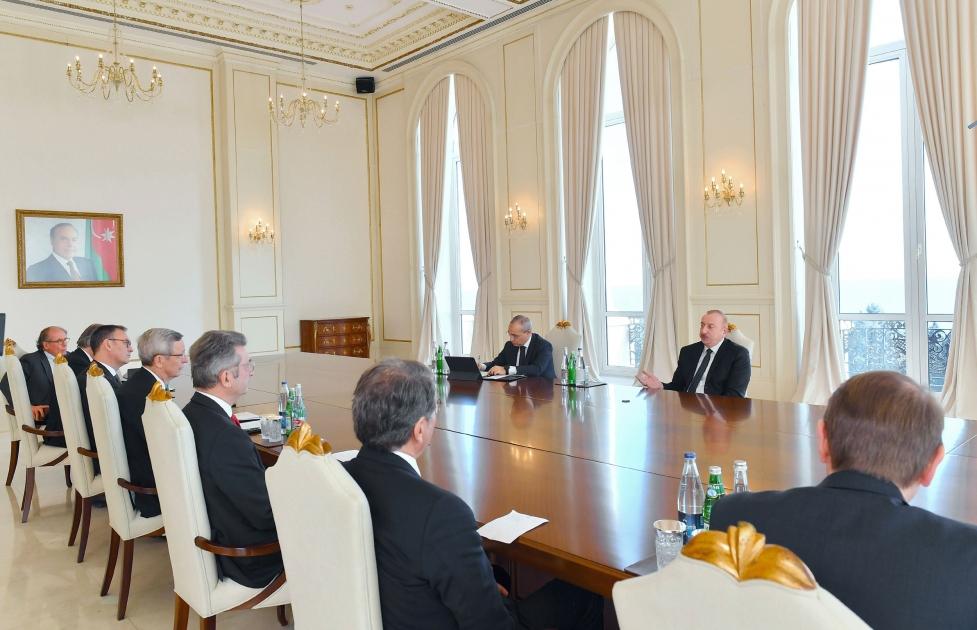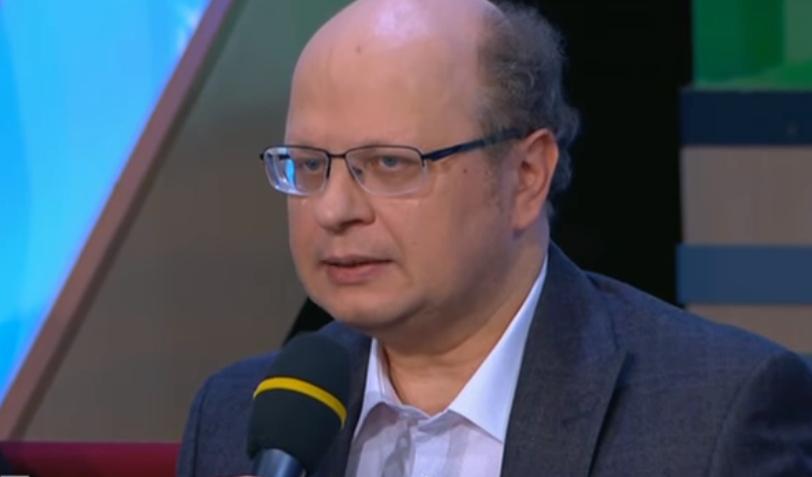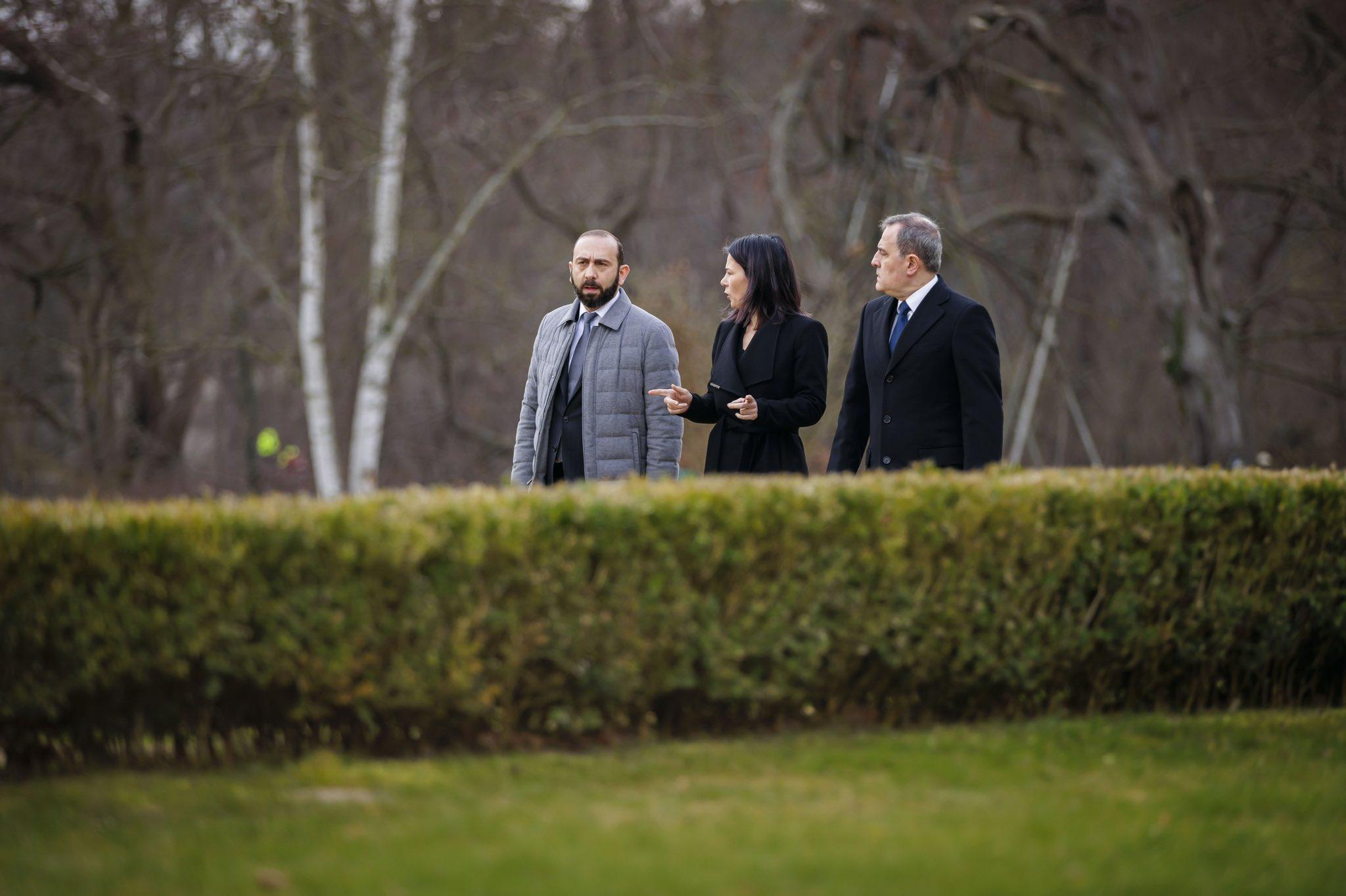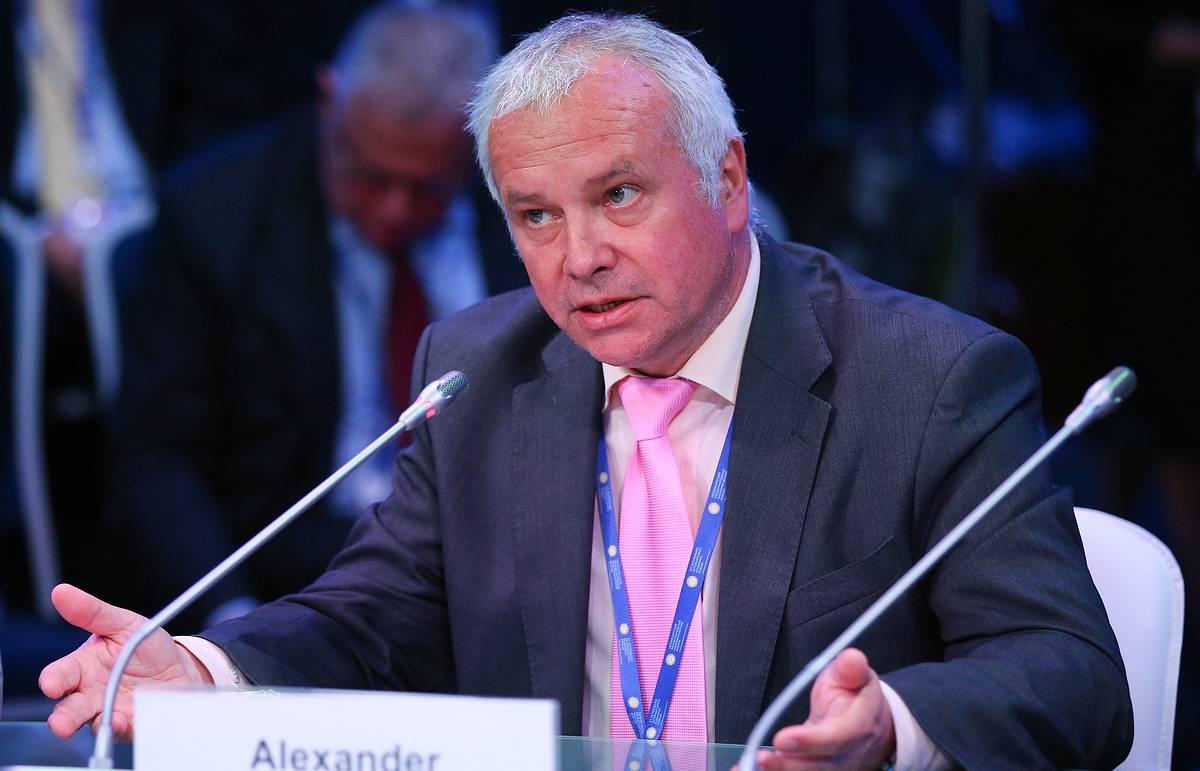Germany challenges France to duel over mediating role in Azerbaijan-Armenia settlement Experts ponder over FRG's negotiation initiatives
As we reported, on February 28-29 the foreign ministers of Azerbaijan and Armenia, Jeyhun Bayramov and Ararat Mirzoyan, held negotiations in Berlin to discuss the countries' positions on the items of the draft "Bilateral Agreement on Peace and Establishment of Interstate Relations". Within the framework of the visit, Jeyhun Bayramov and Ararat Mirzoyan had a meeting with the German Foreign Minister Annalena Baerbok. Bayramov expressed gratitude to the German side for organising negotiations between Azerbaijan and Armenia.
In this regard, I would like to recall the words of the President of Azerbaijan Ilham Aliyev, who said on February 28 while receiving the delegation headed by the Chairman of the Eastern Committee of the German Economy Michael Harms. The head of state stressed that "Germany is demonstrating neutrality in the peace process, unlike neighbouring France, which, as they say, is pouring petrol on the fire and supplying Armenia with lethal weapons".

In other words, Baku understands that Berlin, unlike Paris, can be less partisan in the Armenian-Azerbaijani settlement. Will Germany maintain this approach going forward? What will France's reaction be? And what are Germany's interests here? Caliber.Az had a look at the answers to these questions with the help of political analysts from Germany.

Relations between the European Union and Azerbaijan have their pros and cons, according to German journalist and political expert Eugen Kudryats. On the one hand, the EU seems to be flirting with Yerevan. On February 27, for example, the European Parliament in Strasbourg had a debate on the strengthening of EU relations with Armenia. To this end, the EU has plans to develop defence and security cooperation with Armenia, including through the European Peace Facility, as well as to increase investment in its economy. However, Germany, which has its own interests in the region, is keen to see negotiations between Baku and Yerevan progress and a peace treaty signed.

"At the invitation of the German government, Armenia and Azerbaijan held talks in Berlin. It was Olaf Scholz who was the initiator of these talks. The German Foreign Minister noted that the talks in Berlin must continue the 'productive discussions' that began two weeks ago in Munich. She also said that Berlin wanted to provide a 'suitable platform for progress' in the talks. The German Foreign Ministry said ahead of the talks that "Germany is committed to resolving the outstanding issues between Armenia and Azerbaijan peacefully and without the use of force. And for this purpose it is important that the peace talks between the two countries are concluded as soon as possible," the political analyst noted.
According to our interlocutor, Annalena Baerbock wants to prove herself as a diplomat in these negotiations, and her main goal is to reach a compromise between the parties. Berlin's not interested in French intrigues.
"I think Germany has taken the mediation baton from Paris and is trying its best to succeed in this. Given Macron's warm relations with Armenia, I don't think Berlin will act on orders from Paris. I sincerely hope that the German Foreign Minister will manage to remain neutral in the Armenian-Azerbaijani conflict avoiding taking an anti-Azerbaijani stance," Kudryats noted.

Alexander Rahr, a German political scientist and professor at the WeltTrends Institute for International Policy in Potsdam, confirms this idea. In his opinion, Germany does not want to act at the behest of France, which is now pulling the rug out from under its own feet on foreign policy and European issues, and is openly siding with Yerevan in the conflict between Armenia and Azerbaijan.
"Germany is more pragmatic. Germany understands that it needs Azerbaijan as a future major gas supplier. There is no need to quarrel with Baku. But on the other hand, Germany is triumphant because Armenia is leaving the CSTO military alliance under pressure from the European Union," the political analyst noted.
In his view, the goal of Germany and other European countries is the complete isolation of Russia in the post-Soviet space. The stronger the Russian offensive in Ukraine, the stronger the West's desire to attack Russia elsewhere. And Armenia is seen only as a stepping stone for the European Union and NATO to move into the post-Soviet space.
"According to Scholz and Baerbock, Germany wants to demonstrate the diplomatic strength of the West and Europe with the peace treaty between Yerevan and Baku, which can be signed in Berlin. It should be borne in mind that the main objective of Germany and the European Union in the Caucasus region is the containment of Russia and China. After the peace agreement between Baku and Yerevan, Germany is inclined to put all its efforts into creating new transit corridors through the Caucasus region to Asia, bypassing Russia and China's Silk Road. The West urgently needs secure transit routes to Asia after the flow of goods from Asia was blocked in the Red Sea," Rahr said.








